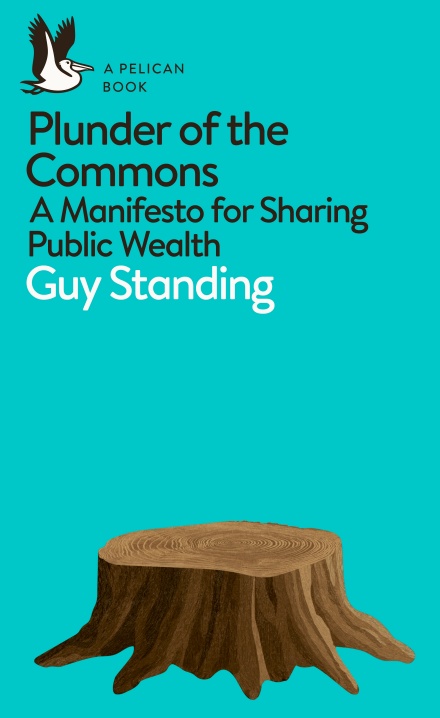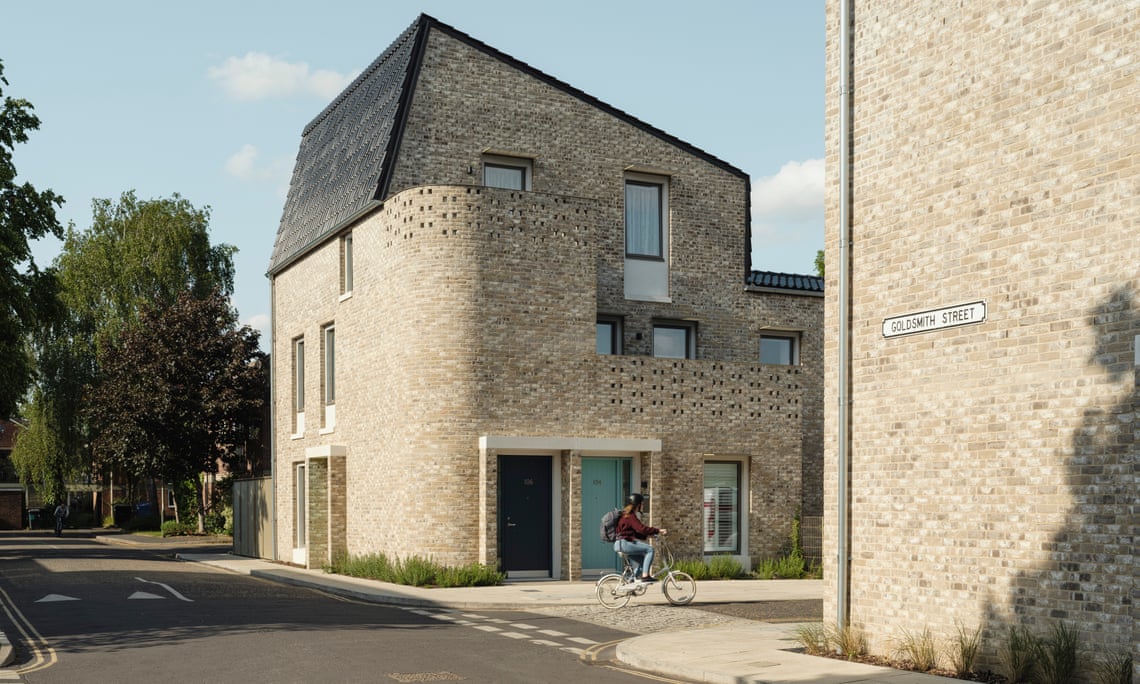Talking Points: October 2019
Posted on 06 Nov 2019 Categories: Blog, Climate crisis, Housing, Talking Points, The business we want, The society we want, The state we want
by Rethinking Poverty
This month’s Talking Points looks at a variety of ideas for improving people’s lives – from good architecture to kindness and a newly woven social fabric. We also look at examples of direct democracy in action in the form of citizens’ assemblies, and the role of business in society, positive and negative. We end with inspiring stories from Mexico and the UK.
More evidence of rising inequality
 The evidence of rising inequality continues to appear. The Independent reports a new study, The Triumph of Injustice, showing that in 2018, for the first time in history, America’s richest billionaires paid a lower effective tax rate than the working class. In 2018 the average effective tax rate paid by the richest 400 US families was 23 per cent as against the 24.2 per cent rate paid by the bottom half of American households.
The evidence of rising inequality continues to appear. The Independent reports a new study, The Triumph of Injustice, showing that in 2018, for the first time in history, America’s richest billionaires paid a lower effective tax rate than the working class. In 2018 the average effective tax rate paid by the richest 400 US families was 23 per cent as against the 24.2 per cent rate paid by the bottom half of American households.
Returning to the UK, a new book called Plunder of the Commons: a manifesto for sharing public wealth by Guy Standing demonstrates how much public wealth has been redirected to the 1 per cent in recent decades through the state-approved exploitation of everything from our land to state housing, health and benefit systems, to our justice system, schools, newspapers and even the air we breathe. It proposes a charter for a new form of ‘commoning, of remembering, guarding and sharing that which belongs to us all’.
Improving people’s lives
A variety of suggestions for improving people’s lives emerged in October. The prestigious RIBA Stirling architecture prize went to Goldsmith Street in Norwich, ‘streets of terraced homes built directly by the council, rented with secure tenancies at fixed social rents’, described by the judges as ‘a modest masterpiece’ representing ‘high-quality architecture in its purest most environmentally and socially conscious form’. The award was hailed by the Guardian’s Simon Jenkins. ‘Wonders never cease,’ he writes. ‘… I have championed streets all my life.’
From the Carnegie UK Trust comes a report on Public policy and the infrastructure of kindness in Scotland. Simon Anderson and Julie Brownlie suggest three ways in which public policy needs to ‘attend to the more immediate preconditions for the infrastructure of kindness’: creating and preserving ‘social infrastructures of various kinds’, such as public spaces, libraries and cafes …; examining the relationships within organisations, and allowing more informal interactions between staff and employees; and using ‘narratives of kindness’ to help people feel able to offer and receive kindness.
In the US, the conservative New York Times columnist David Brooks, as executive director of the Aspen Institute’s ‘Weave: The Social Fabric Project’, is bringing together people who are building relationships to improve their communities in the hopes of sparking a social movement. ‘Weaving is a way of life and a state of mind, not a set of actions, says the project’s website. ‘It’s about the spirit of caring you bring to each interaction with someone else.’

What is community wellbeing?
Meanwhile, the Co-op’s Community Wellbeing Index is the first measure of community wellbeing at a local level across all four nations of the UK. Through a series of 15 community co-production workshops with over 400 people from across the UK, they came up with a definition of wellbeing as ‘a collective feeling of leading a “good life”, shared and created by people and organisations. Community wellbeing is more than the sum of people’s individual wellbeing; it is the relationships between people and with place.’
Direct democracy in action
Greater participation in politics could also make people feel more connected. In Belgium an experiment with lottery-selected ‘Citizens Councils’ is being touted as a better way of deciding political policy. ‘This so-called Citizens Council won’t have actual policy-making powers,’ explains the Economist, ‘but the local government will have to consider implementing every idea that is supported by more than 80 percent of them, and publicly defend themselves if they decide not to make the Citizen Council’s proposals happen.’ While some people are disturbed by ‘the idea that non-elected people should have such an influence on government policy’, others think that the project would be ‘a great way to improve diversity in politics’.
In the London Borough of Camden, a Citizens Assembly came up with a 17-point action plan for cutting carbon emissions, unanimously accepted by the Labour-run council. At least 11 councils are now using citizens’ assemblies to drive climate action, including Devon, Dudley, Cambridge and Test Valley. But citizens’ assemblies are fraught with danger for councils, says Richard Vize. If the assembly is allowed ‘to charge towards the revolutionary end of the climate emergency, it will either raise expectations that can never be fulfilled or alienate other local people by presenting them with intolerable options. Exert too much control and it will stifle creativity and lose credibility.’
Business doing its bit – or not
CLES’s latest research on behalf of the Power to Change Research Institute, Building an inclusive economy through social business, looks at how community businesses can support the development of more inclusive economies in deprived areas. Community businesses play a crucial role in community wealth building by enabling a more plural ownership of the economy, writes Jonty Leibowitz.
Previous work by CLES has demonstrated how local authority procurement policies can help build the local economy by keeping spending local. Unfortunately, the UK government seems not to be taking this approach. A recent report from thinktank Demos finds that 24 out of 35 ‘strategic suppliers’ to the government operate in offshore jurisdictions. Of these, 19 had operations in jurisdictions included on the EU’s ‘blacklist’ or ‘greylist’ of countries that are considered to be non-compliant with EU international standards for ‘good tax behaviour’, according to the report.
On a more positive note, the Guardian Media Group has announced it is to become the first international news organisation to become a B Corporation, committing itself to become a more purposeful business across all its operations and pledging to reach net zero emissions by 2030.
Nobel Prize for tackling poverty
Abhijit Banerjee and Esther Duflo of the Massachusetts Institute of Technology won the Nobel Prize for Economics for pioneering on-the-ground experiments to discover the most effective ways to tackle poverty in the developing world. A welcome recognition of the importance of tackling poverty, or impoverished economics? ‘While such small interventions might generate positive results at the micro-level, they do little to challenge the systems that produce the problems,’ writes Ingrid Harvold Kvangraven on OpenDemocracy.
More challenging ideas may come from the New Economics Foundation’s new publication, the New Economic Zine. The debut issue, published on 29 October, seeks ‘to showcase new ideas and platform voices outside of orthodox economics’.
Inspiring stories

In a month that has seen Extinction Rebellion activists in around 60 countries take to the streets to demand action on the climate emergency, it’s inspiring to read about campaigns that won, as when Mexico chose a lake instead of an airport. After 17 years of resistance against the construction of an airport megaproject that threatened the livelihoods of tens of thousands of peasant farmers and Indigenous peoples, as well as the water supply of Mexico City and beyond, a year ago, activists launched the #YoPrefieroElLago campaign – an uprising to stop the airport project.
Back in the UK, on 2 November the government announced a moratorium on fracking in England. ‘It’s a victory for the communities across the country in places like Lancashire and Yorkshire who kept on campaigning in the face of fracking rigs, legal threats and earthquakes,’ writes Friends of the Earth. ‘And it shows just how powerful we can be when we campaign together to protect the climate.’
Want to keep up-to-date with more articles like this? Sign up to our newsletter.
Posted on 06 Nov 2019 Categories: Blog, Climate crisis, Housing, Talking Points, The business we want, The society we want, The state we want
